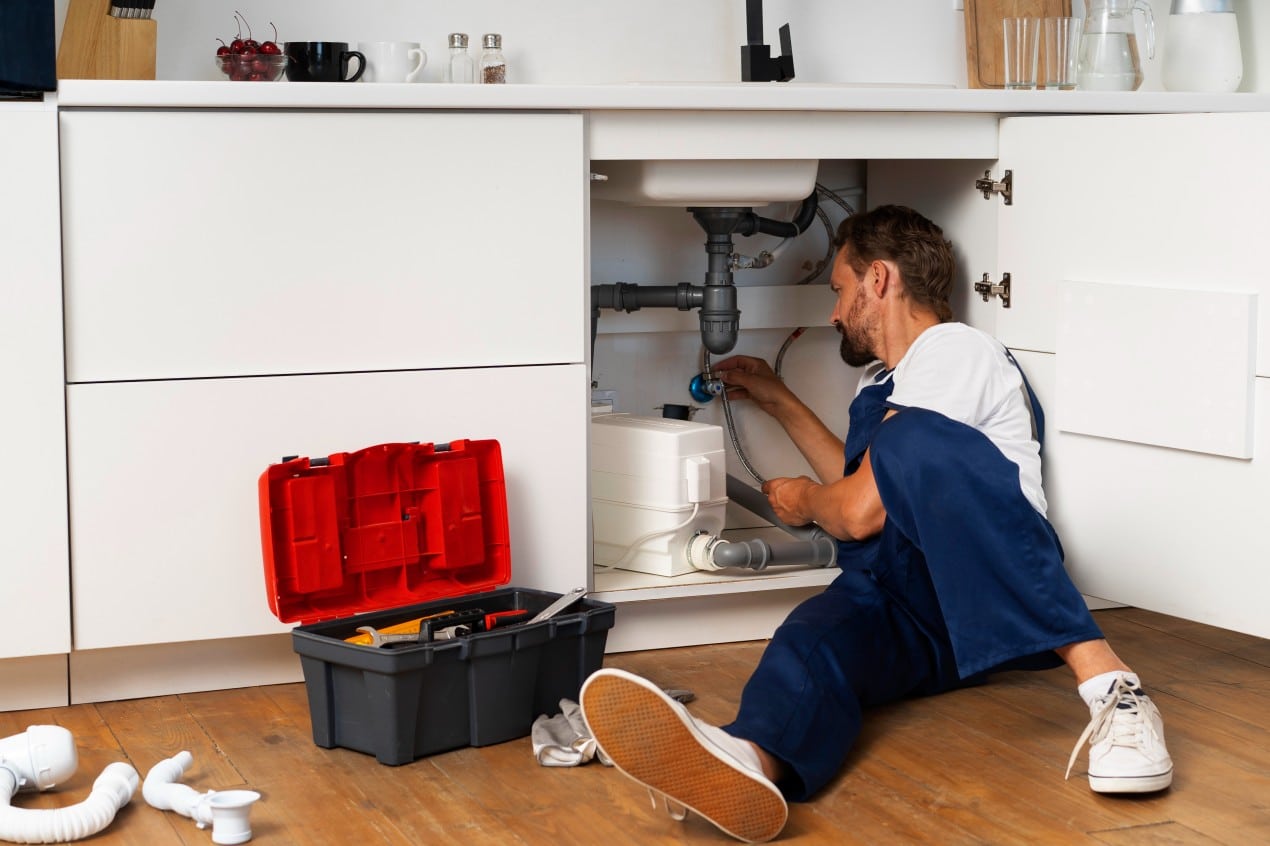Plumbing emergencies are understandably one of the most stressful situations homeowners face. Whether it’s a burst pipe, a backed-up toilet, or overflowing sewage, the anxiety can feel overwhelming. In these moments, having a reliable plan can make all the difference. Knowing who to call and what to do can save you time, money, and a whole lot of hassle.
Recognising the Signs of a Plumbing Emergency
The first step in handling a plumbing emergency is recognising it as such. Some situations are more pressing than others. Here are key indicators you might be dealing with an urgent issue:
- Severe leaks or bursts: If water is spraying uncontrollably, it’s crucial to act fast. Shut off your main water supply immediately and call for help.
- Clogged toilets: While a simple clog may be a DIY fix, an overflowing toilet indicates a serious problem that often requires professional assistance.
- Sewage backups: If you notice sewage coming back through your drains, this is definitely a plumbing emergency. It’s both unsanitary and requires immediate attention.
When faced with these issues, turning to a qualified plumber is essential. A quick online search may reveal numerous options, but not all plumbers are created equal. It’s important to choose someone you can trust. For example, check out flowise.co.uk.
Finding a Trustworthy Plumber
When searching for a reliable plumber, consider the following strategies to ensure you find quality help:
- Ask for Recommendations: Start by asking friends, family, or neighbours for reliable plumbers they’ve used and trust. Personal recommendations often carry more weight than online reviews.
- Check Online Reviews: Websites like Trustpilot or Google Reviews can provide insights into a plumber’s service quality. Look for consistent themes in feedback and pay attention to how the service provider responds to complaints.
- Search Certification and Licensing: Always verify that any plumber you consider is licensed and insured. This not only protects you when issues arise but also indicates a level of professionalism and qualification.
- Visit Local Directories: Websites such as flowise.co.uk provide listings of qualified plumbers, coupled with additional resources. They offer helpful articles and customer reviews that can smooth the search process.
- Get Multiple Quotes: Once you have a few options, don’t hesitate to get quotes. This allows you to compare prices and services offered, helping you choose the best fit for your needs.
When placing calls or sending emails, prepare a list of detailed questions to assess their professionalism and knowledge. Ask about service areas, emergency availability, and their experience with your specific issue.
Responding to a Plumbing Emergency
Once you’ve found a reliable plumber ready to assist, there are several crucial steps you can take while waiting for help to arrive. First, ensure that you’ve shut off your main water supply to prevent further damage. You might also want to contain any leaks with towels or buckets to minimise water damage.
Consider documenting the situation, too. Taking photos or notes can provide valuable information for the plumber upon arrival. This documentation might save time and potentially lower costs when they assess the situation.
Moreover, it helps to have a list of useful contact information for local utility companies. For instance, if you suspect any gas lines are involved, you need to reach out to a gas service provider to ensure safety immediately.
How to Prevent Plumbing Emergencies
While emergencies happen, many situations can be avoided with a little bit of preventive care. Regular maintenance checks can spot small issues before they escalate into expensive repairs. Here are a few basic tips:
- Inspect Pipes Regularly: Check for signs of moisture or corrosion on visible pipes. Addressing a small leak promptly can prevent a larger emergency down the line.
- Know Your System: Familiarise yourself with your plumbing layout, including where your main shut-off valve is located. This knowledge can be vital during a plumbing crisis.
- Maintain Drains: Be cautious about what you allow down your drains. Ensuring they’re properly drained and clear of debris can prevent clogs.
- Insulate Pipes: In colder months, consider insulating your pipes to prevent freezing and bursting.
What About Other Emergencies?
Interestingly, this concept of preparedness applies not just to plumbing but to various facets of life, including personal health. For instance, consider how readily available certain health aids have become—like penis pumps, which are sometimes sought for issues like erectile dysfunction. Just as with plumbing problems, having reliable information and easy access to trusted sources can be critical for managing unexpected health concerns.
In both plumbing and health emergencies, it’s essential to know what options are out there and how to access them efficiently.
In Closing
When an unexpected plumbing emergency strikes, being prepared can save you a great deal of time, money, and stress. By identifying trustworthy plumbers and knowing how to respond quickly, you can mitigate the chaos that often accompanies such situations.
Remember to rely on local sources such as flowise.co.uk to find qualified professionals who can help when you need it most. Additionally, taking preventative measures can greatly reduce the likelihood of emergencies occurring in the first place. Awareness, preparedness, and reliable resources are your best tools in managing plumbing—and indeed many other unexpected—crises.

